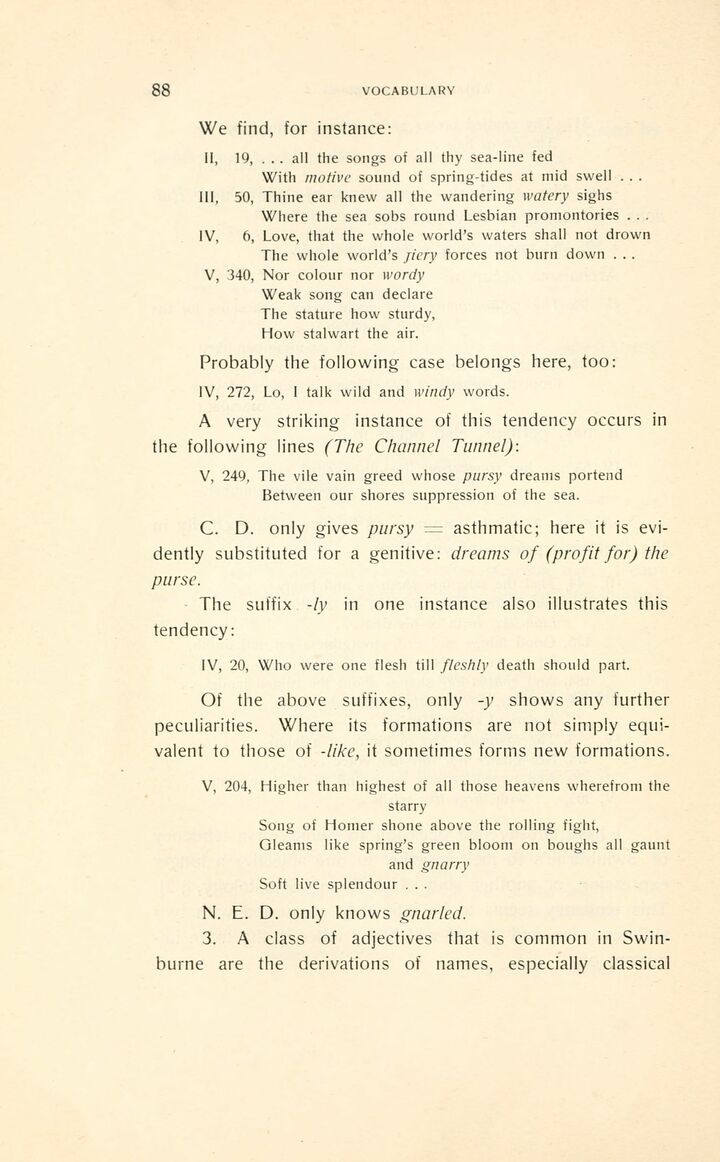
Full resolution (JPEG) - On this page / på denna sida - Sidor ...

<< prev. page << föreg. sida << >> nästa sida >> next page >>
Below is the raw OCR text
from the above scanned image.
Do you see an error? Proofread the page now!
Här nedan syns maskintolkade texten från faksimilbilden ovan.
Ser du något fel? Korrekturläs sidan nu!
This page has never been proofread. / Denna sida har aldrig korrekturlästs.
88
VOCABULARY
We find, for instance:
II, 19, ... all the songs of all thy sea-line fed
With motive sound of spring-tides at mid swell . . .
III, 50, Thine ear knew all the wandering watery sighs
Where the sea sobs round Lesbian promontories . . .
IV, 6, Love, that the whole world’s waters shall not drown
The whole world’s jiery forces not burn down . . .
V, 340, Nor colour nor wordy
Weak song can declare
The stature how sturdy,
How stalwart the air.
Probably the following case belongs here, too:
IV, 272, Lo, I talk wild and windy words.
A very striking instance of this tendency occurs in
the following lines (The Channel Tunnel)-.
V, 249, The vile vain greed whose pursy dreams portend
Between our shores suppression of the sea.
C. D. only gives pursy = asthmatic; here it is
evidently substituted for a genitive: dreams of (profit for) the
purse.
The suffix -ly in one instance also illustrates this
tendency:
IV, 20, Who were one flesh till fleshly death should part.
Of the above suffixes, only -y shows any further
peculiarities. Where its formations are not simply
equivalent to those of -like, it sometimes forms new formations.
V, 204, Higher than highest of all those heavens wherefrom the
starry
Song of Homer shone above the rolling fight,
Gleams like spring’s green bloom on boughs all gaunt
and gnarry
Soft live splendour . . .
N. E. D. only knows gnarled.
3. A class of adjectives that is common in
Swinburne are the derivations of names, especially classical
<< prev. page << föreg. sida << >> nästa sida >> next page >>